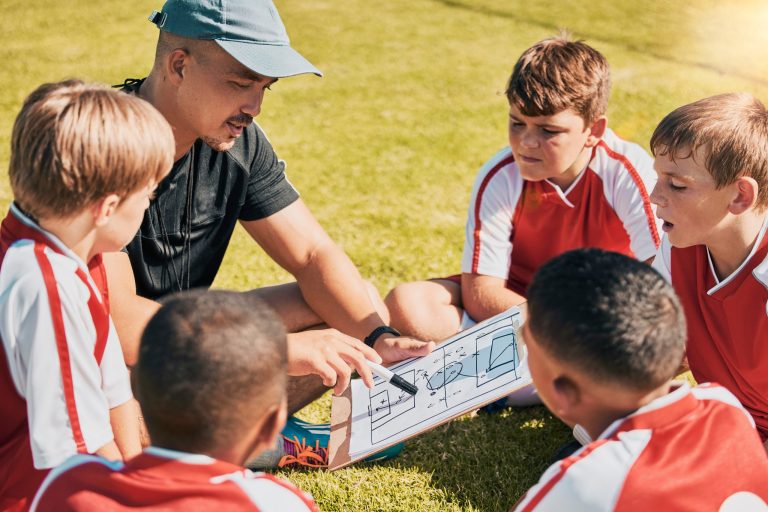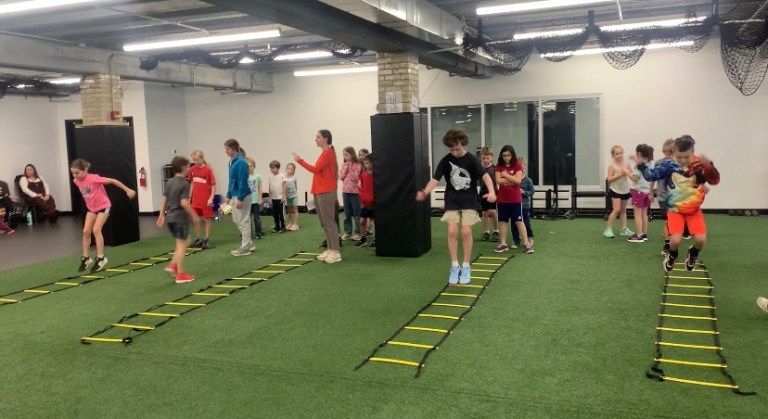PROFILE
The Best Thing I Learned From: Tracy Hanson
What happens when performance becomes an idol?
DEL DUDUIT
never miss a play
Get weekly articles on sport culture, relationships, and identity.
How can anyone hate golf?
For Tracy Hanson, it—both the game and the hating—came easy.
She won her first trophy when she was 10.
The look of approval on her dad’s face fed her desire to please him. The more she won, the more attention she received. She loved it.
Performance.
To excel and perfect her swing fueled her to where she could not get enough. She was hooked on the recognition and adoration that accompanied success to help fill the emptiness she felt inside.
Performance.
To excel at any sport is difficult, but it takes hours of daily dedication and endurance to be really good in golf. Practice. Practice. Practice.
Tracy continued to win on the links, and this provided a false sense of love and acceptance from her father.
Performance.
She started to find shelter behind her sport as it provided protection from the emptiness she felt from the need to produce on the short grass. The only way she felt connection with her dad was to win.
Tracy had to please everyone else—at her own expense.
She had become addicted—not to drugs—but to her performance.
Her internal need to please others was fueled by golf. She could not let anyone down. Eventually, she landed a spot on the San Jose State University golf team.
She was alone in the car on her way to California from Idaho when she met Jesus Christ as her Savior. But even this freeing decision left her confused because the person who began the discussion about Christ with her sexually abused her.
“It was one way he tried to control me,” she said to the crowd at the Athletes in Action Hall of Faith Induction at the Night of Champions. “But I know now that I am a survivor.”
She didn’t realize the extent of the abuse for nearly two decades, because she used the addictive power of performance to mask what had taken place. She needed approval and acceptance to mask the pain.
Doing well on the course and in the classroom numbed the pain she felt from her emotionally empty home and from the abuse she endured.
She was alone on a strange campus in California and had no one to talk with about spiritual issues.
“I jumped back into my performance because that made me feel comfortable and accepted,” she said. “I had no idea where to look for help.”
THE BEST THING I LEARNED
the Lord can break the addiction OF PERFORMANCE
In college, she won 11 individual tournaments, played on an NCAA National Championship team, and was selected All-American four times.
Tracy went on to play professional golf on the LPGA and enjoyed a successful career. She collected seven holes-in-one and retired in 2009.
“I was on a mental and emotional breakdown path,” she said. “I was working hard on my game and wasn’t seeing the results.”
With her performance failing, she had no place to hide from the shame consuming her from the inside out—a place where she believed the sexual abuse was her fault. She was vulnerable.
“Everything unraveled,” she admitted. “I lost my joy and my desire and I hated the sport. I hated golf.”
She was also faced with a dilemma: She was a professional Christian athlete. Tracy had a platform and expectations from her fans. Everyone expected her to be positive.
“I not only had to perform on the course, but I had to perform for Jesus too,” she said. “I’m not supposed to talk about the bad things in my life—only the good things, right?” How would people react? Would she be condemned?
She was in a deep bunker and couldn’t see the green.
Finally, when she gave herself permission to rest and recover, she met three women who helped her begin to change her life. With their help, she found the courage to break her silence and expose the evil power of shame that had encamped her life. When she revealed her past, the chains were broken, and freedom emerged—slowly.
Over time she began to realize the stronghold performance had on her life.
Let us break their bands asunder and cast away their cords from us (Psalm 2:3 KJV).
Her mission now is to help and encourage others who have experienced similar circumstances. Her ministry focuses on providing safe space for other elite athletes to talk about their stories of trauma. She knows the addictive power of performance and emphasizes the only way to cope in life is through Jesus Christ.
I jumped back into my performance because that made me feel comfortable and accepted. I had no idea where to look for help.
THE BEST THING I LEARNED FROM TRACY HANSON:
Today’s athlete starts young. I’ve been guilty of pushing my kids to the limits at an early age. I was the only adult Little League coach with a full-size batting cage in his backyard. I lived at the fields and tried to stress dedication. It’s easy to get caught up in the travel ball. My son was on a team that traveled to Puerto Rico at 12. I didn’t push them away, but I had aspirations that never panned out.
“I think the specialization of one sport is an issue and not allowing kids to be multi-sport athletes at such young ages can hurt a player and wear them out,” Tracy told me. “They get burned out or they get tired of playing trying to meet everyone’s expectations. Just let kids who are eight, nine or 10 years old play the game—nothing else.” I also learned the Lord can break the addiction and good can come out of evil.
By the way, Tracy enjoys the game of golf again—with no expectations.
For more information, visit Tracy’s website: https://tracyhanson.com/
*Photo by Wes Farnsworth
READ THE LATEST
Where sport culture, relationships, character, identity, and faith collide.



